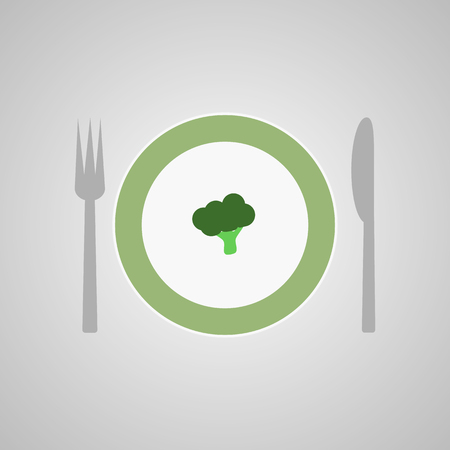Introduction to TCM Dietary Therapy
Traditional Chinese Medicine (TCM) dietary therapy is a cornerstone of Eastern health philosophy, offering a distinctive approach to nutrition that stands apart from Western paradigms. Rooted in ancient wisdom, TCM dietary therapy is built on the belief that food is not only sustenance but also medicine, with the potential to maintain balance and prevent disease. The core principles revolve around the concepts of Yin and Yang, the Five Elements, and Qi (vital energy), emphasising harmony between body, environment, and season. Unlike calorie-focused Western diets, TCM considers the energetic properties of foods—such as warming or cooling effects—and their impact on individual constitution. This holistic method recognises that health is influenced by both physical and emotional factors, advocating for personalised nutrition tailored to one’s unique needs. In the context of British culture, where eating habits often prioritise convenience and tradition, integrating TCM’s nuanced perspective offers an opportunity to enhance wellbeing through mindful, balanced choices grounded in centuries-old Eastern nutritional science.
2. Key Principles of TCM Nutrition
Traditional Chinese Medicine (TCM) dietary therapy is rooted in a set of guiding principles that differ significantly from Western nutritional models. When integrating these concepts into the British diet, it is essential to understand the foundational elements of TCM nutrition: the dynamic balance of Yin and Yang, the Five Elements theory, and the energetic properties of foods.
Yin and Yang Balance
In TCM, health is believed to depend on the harmonious balance between Yin (cooling, moistening, calming) and Yang (warming, drying, activating) forces within the body. Foods are classified according to their Yin or Yang properties, and diet can be adjusted seasonally or according to individual constitutions to restore equilibrium. For example, in colder British winters, incorporating more Yang foods such as oats or root vegetables can help maintain warmth and energy.
The Five Elements Theory
The Five Elements—Wood, Fire, Earth, Metal, and Water—form another cornerstone of TCM dietary therapy. Each element corresponds to specific organs, flavours, colours, and seasons. This framework can be adapted to British eating habits by selecting local foods that align with both seasonal changes and organ support needs.
| Element | Organ System | Season | Flavour | Examples (UK Foods) |
|---|---|---|---|---|
| Wood | Liver/Gallbladder | Spring | Sour | Rhubarb, Apple Cider Vinegar |
| Fire | Heart/Small Intestine | Summer | Bitter | Kale, Dandelion Greens |
| Earth | Spleen/Stomach | Late Summer | Sweet (mild) | Porridge Oats, Carrots, Squash |
| Metal | Lung/Large Intestine | Autumn | Pungent | Leeks, Onions, Horseradish |
| Water | Kidney/Bladder | Winter | Salty | Seaweed, Haddock, Mussels |
The Energetic Properties of Foods
A unique feature of TCM nutrition is its focus on how foods energetically affect the body beyond macronutrient content. Foods are categorised as warming or cooling based on their effects rather than their temperature. For instance, ginger and lamb are considered warming and may benefit those who feel cold easily—a common complaint in the UK’s climate—while cucumber and lettuce are cooling and more suitable for summer months or individuals with excess internal heat.
Cultural Adaptation for British Diets
The application of these TCM principles allows Britons to make informed choices about their meals using local ingredients while supporting seasonal health needs. By considering the energetic nature of foods along with traditional British culinary preferences—such as stews in winter or lighter salads in summer—it is possible to create a balanced diet that aligns with both Eastern wisdom and Western lifestyles.

3. Adapting TCM Principles to the British Diet
Traditional Chinese Medicine (TCM) dietary therapy revolves around balancing the body’s internal energies and supporting organ health through mindful food choices. When applying these Eastern nutrition principles to the British diet, it is essential to reinterpret familiar foods using TCM frameworks such as the Five Elements, thermal nature of foods (warming, cooling, neutral), and their energetic actions.
Re-examining Classic British Ingredients
Staple foods such as potatoes, oats, carrots, cabbage, and leeks are widely consumed in Britain. According to TCM, root vegetables like potatoes and carrots are grounding and nourishing for the Spleen – an organ system central to digestion and energy production in Chinese medicine. Oats, a common breakfast grain, are considered mildly warming and beneficial for Qi (vital energy), making them suitable for most constitutions, especially during colder months.
Meat, Fish, and Dairy: Balancing Energies
The British diet features a range of animal proteins. Lamb and beef are viewed as warming foods in TCM, helping to support Yang energy, particularly useful in cold or damp conditions typical of the UK climate. Fish such as cod and haddock are more neutral or slightly cooling; they can be paired with warming spices or cooked with ginger to harmonise their effects according to individual needs.
Seasonal Eating in the UK Context
TCM encourages eating seasonally and locally. In Britain, this means consuming hearty stews and roasted root vegetables in winter for warmth, while favouring salads, cucumbers, and fresh berries during summer to cool the body. Adapting traditional recipes by including ginger, garlic, or spring onions can enhance digestive fire (Spleen Yang) without drastically altering local food culture.
Herbal Teas and Infusions
Herbal teas like peppermint or chamomile are popular in the UK and align well with TCM’s emphasis on gentle nourishment. Peppermint is considered cooling and can support Liver Qi movement—helpful for stress or digestive complaints—while chamomile calms the mind and soothes digestion.
This integrative approach allows individuals to maintain their cultural food preferences while benefiting from TCM dietary wisdom. By interpreting British ingredients through an Eastern lens, it becomes possible to create balanced meals that nurture health according to both tradition and modern nutritional science.
4. Seasonal Eating and Local British Produce
Seasonal eating is a cornerstone of Traditional Chinese Medicine (TCM) dietary therapy, which encourages the consumption of foods that are naturally available during each season. This approach aligns closely with sustainable British food culture, where seasonal produce is both valued and readily accessible. By integrating local British ingredients with TCM principles, individuals can optimise their diet for enhanced wellbeing and resilience against seasonal ailments.
The Benefits of Seasonal Eating
From a TCM perspective, eating in harmony with the seasons supports the body’s natural rhythms and adapts to environmental changes. During colder months, warming foods nourish the body’s Yang energy, while lighter, cooling foods in summer help dissipate excess internal heat. Nutrient density also peaks in seasonal produce, offering maximum flavour and health benefits.
Integrating British Produce Within TCM Guidelines
Applying Eastern nutrition principles does not require sourcing exotic ingredients; many British staples fit seamlessly into a TCM-informed diet. The key is to select ingredients based on their energetic properties—warming or cooling—and their compatibility with the season’s needs.
Examples of Seasonal British Foods Mapped to TCM Principles
| Season | British Produce | TCM Energetic Property | Recommended Preparation Methods |
|---|---|---|---|
| Spring | Tender greens (watercress, spinach), asparagus, radishes | Slightly cooling, support Liver function | Light steaming or raw in salads |
| Summer | Berries, tomatoes, cucumber, courgette | Cooling, clear Heat, hydrate body fluids | Fresh salads, quick stir-fry, cold soups |
| Autumn | Pears, apples, squash, carrots | Moistening and nourishing for Lungs | Baking, slow roasting |
| Winter | Cabbage, leeks, parsnips, root vegetables | Warming and strengthening Kidney Yang | Braising, stews, soups |
Practical Tips for Adopting Seasonal & Local Eating Habits
- Shop at local farmers’ markets: This ensures you buy what’s truly in season and supports local agriculture.
- Preserve surplus produce: Fermenting or freezing helps extend access to certain foods while maintaining their energetic qualities.
- Plan meals around variety: Rotate dishes to incorporate different textures and flavours throughout the year for balanced nutrition.
- Listen to your body: Notice how you feel after eating certain foods each season and adjust accordingly within TCM guidelines.
This integration of TCM dietary wisdom with locally grown British produce allows for practical and sustainable health improvements. Adopting this approach fosters both personal wellness and environmental stewardship—key values in contemporary UK culture.
5. Practical Meal Examples
Applying Traditional Chinese Medicine (TCM) dietary therapy to everyday British meals can be straightforward and enjoyable. Below, we provide practical meal examples and recipes that integrate Eastern nutrition principles while respecting familiar British ingredients and food culture. These meal ideas promote balanced nutrition, support digestion, and foster overall wellbeing.
Breakfast: Warming Porridge with Stewed Pears
Porridge is a classic British breakfast that aligns well with TCMs emphasis on warm, easily digestible foods in the morning. Prepare traditional oats with water or oat milk, simmering gently to create a smooth texture. Add stewed pears seasoned with a pinch of cinnamon and ginger—ingredients known in TCM to support spleen and stomach health. Top with a handful of walnuts for added nourishment.
Lunch: Poached Salmon Salad with Root Vegetables
For lunch, combine poached Scottish salmon with lightly steamed root vegetables such as carrots, parsnips, and beetroot. Dress the salad with a drizzle of cold-pressed rapeseed oil and a splash of apple cider vinegar. This meal provides high-quality protein and healthy fats while utilising seasonal British produce, promoting yin-yang balance and supporting liver function according to TCM principles.
Afternoon Snack: Barley Tea and Oatcakes
Swap sugary biscuits for oatcakes paired with barley tea—a gentle beverage favoured in both East Asian and some British traditions. Barley is considered cooling in TCM, which can help counteract excessive internal heat. Pairing it with fibre-rich oatcakes supports digestive harmony without overwhelming the system.
Dinner: Steamed Chicken with Leeks and Cabbage
Evening meals should be light yet nourishing to support restful sleep and proper digestion. Steam free-range chicken breast together with leeks and Savoy cabbage, finishing with fresh coriander and a dash of light soy sauce. Serve alongside brown rice or pearl barley to round out the meal. This dish reflects TCMs preference for gently cooked foods that are easy on the stomach.
Recipe Tips for Adapting British Classics
- Opt for steaming, poaching, or stewing over frying to preserve nutrients and maintain digestive ease.
- Include warming spices such as ginger, cinnamon, or nutmeg in porridge or stews during colder months.
- Emphasise locally sourced, seasonal vegetables to connect with both British agriculture and TCM’s focus on eating in harmony with nature’s cycles.
Sample Day Menu (British-TCM Fusion)
- Breakfast: Oat porridge with stewed pears, walnuts, ginger
- Mid-morning: Warm barley tea
- Lunch: Poached salmon salad with root vegetables
- Afternoon snack: Oatcakes with hummus
- Dinner: Steamed chicken with leeks, cabbage, brown rice
This approach demonstrates how integrating TCM dietary therapy into the British diet can be both accessible and beneficial—supporting balanced nutrition without sacrificing local tastes or traditions.
6. Addressing Common British Health Concerns
Incorporating TCM dietary therapy into the British lifestyle offers practical solutions for prevalent health issues often seen across the UK. Modern British life—marked by long work hours, unpredictable weather, and a culture that favours convenience foods—can contribute to digestive discomfort, persistent fatigue, and heightened sensitivity to cold. By applying key Eastern nutrition principles, these complaints can be addressed with both scientific rationale and cultural sensitivity.
Digestive Complaints: Supporting the Spleen and Stomach
Digestive issues such as bloating, irregular bowel movements, and abdominal discomfort are frequently reported in Britain, partly due to high intake of processed foods and irregular meal timings. In TCM, the Spleen and Stomach are central to digestion. To support these organs, meals should emphasise warm, cooked foods such as porridge or stews over cold cereals or salads. Adding warming spices like ginger or cinnamon—already familiar to British palates—can further enhance digestive fire (“yang”), promoting smoother nutrient absorption and reducing symptoms of indigestion.
Low Energy: Nourishing Qi
The long, grey winters and fast-paced urban living in the UK often leave many feeling lethargic. TCM views this as a manifestation of depleted “Qi” (vital energy). To nourish Qi, a diet rich in complex carbohydrates (such as oats or barley), seasonal root vegetables (like carrots and swedes), and moderate amounts of high-quality proteins (including fish or eggs) is recommended. Incorporating small quantities of honey or dates can offer gentle sweetness without overburdening digestion—a strategy that aligns well with traditional British desserts when enjoyed in moderation.
Cold Sensitivity: Warming the Body from Within
Many Britons experience cold hands and feet or feel chilled easily, especially during autumn and winter. From a TCM perspective, this often indicates a deficiency of Yang energy. Practical dietary adjustments include favouring slow-cooked casseroles and soups using lamb or chicken, seasoned with black pepper or nutmeg—familiar ingredients in British kitchens. Avoiding excessive raw foods or iced drinks helps maintain internal warmth. Hot herbal teas such as ginger or chai blends can also be integrated into daily routines to support circulation and overall warmth.
Integrating TCM Principles with Local Preferences
Adapting TCM dietary therapy does not require abandoning cherished British dishes; rather, it encourages subtle modifications. For example, swapping cold milk for warm oat milk in breakfast beverages, choosing hearty vegetable stews over sandwiches during colder months, or adding warming spices to classic recipes can make a meaningful difference. By harmonising Eastern nutrition wisdom with local tastes and habits, common British health concerns can be managed more effectively while preserving culinary identity.
7. Conclusion and Integrating TCM Principles Daily
As we have explored, Traditional Chinese Medicine (TCM) dietary therapy offers a holistic approach to nutrition that aligns food choices with individual constitution, seasonal changes, and overall wellbeing. By understanding the energetic properties of foods and the importance of balance—such as yin and yang or warming and cooling characteristics—Britons can enrich their diets beyond simple calorie counting or nutrient focus.
Key Points Summarised
- Personalisation: TCM emphasises tailoring diet to personal needs, considering factors like age, activity level, and underlying health conditions.
- Seasonal Eating: Consuming locally available, seasonal produce supports harmony with nature’s cycles—a principle easily applied in Britain through enjoying root vegetables in winter or leafy greens in spring.
- Balance and Moderation: Incorporate a mix of warming (e.g., oats, ginger) and cooling foods (e.g., cucumber, mint), adjusting according to weather and personal state.
- Mindful Preparation: Slow-cooked stews or lightly steamed dishes are valued for supporting digestive health, resonating with traditional British comfort foods when prepared thoughtfully.
Practical Guidance for British Lifestyles
- Start by gradually introducing TCM principles—perhaps choosing porridge with warming spices for breakfast or adding barley to soups for its cooling effect.
- Adapt familiar British meals using TCM concepts: swap heavy evening roasts for lighter fish-based dinners with plenty of steamed veg during warmer months.
- Shop at local farmers’ markets to find fresh, seasonal ingredients that support both British agriculture and TCM’s emphasis on seasonality.
- Be attentive to your body’s signals—adjusting your intake of certain foods if you notice changes in energy, sleep, or digestion.
Making TCM Work for You
The integration of Eastern nutrition principles into the British diet need not be daunting. Small, thoughtful changes such as eating more mindfully, choosing foods based on both nutritional value and their energetic qualities, and staying attuned to seasonal shifts can yield tangible benefits. Whether you’re seeking better digestion, increased vitality, or improved resilience to stress, TCM dietary strategies offer a complementary path alongside conventional Western approaches. By embracing these time-tested principles within the context of everyday British life, you can cultivate greater balance and long-term wellbeing—one meal at a time.

